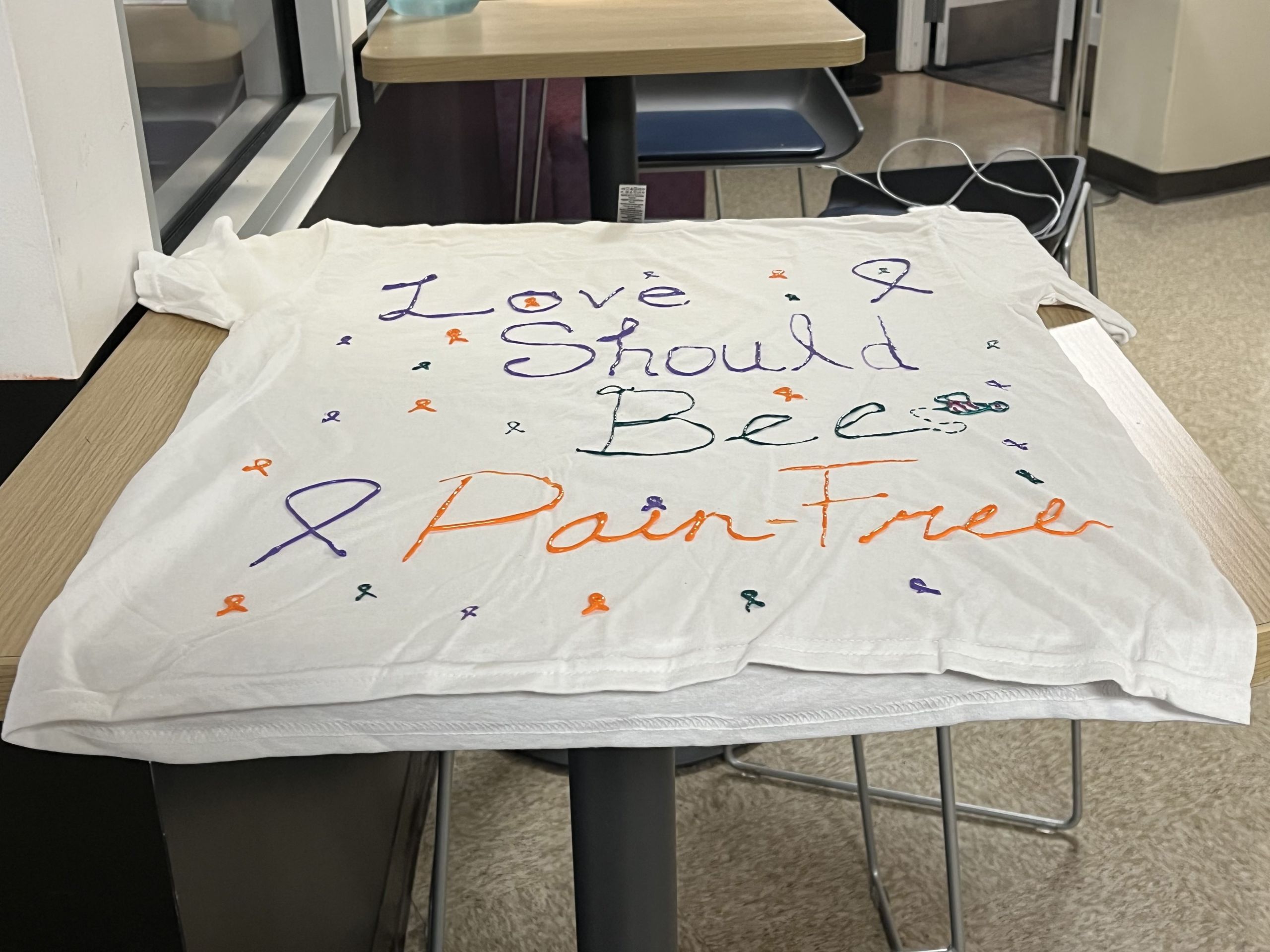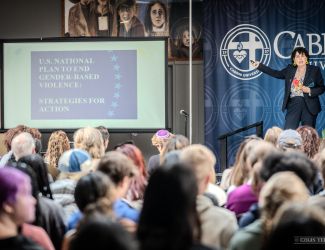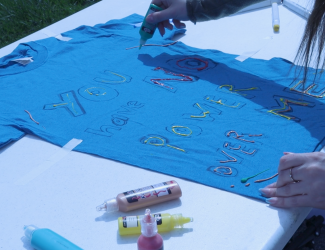On Wednesday, October 26, students on campus had the opportunity to raise awareness of domestic and interpersonal violence by taking part in the Clothesline Project, held in the Grill.
The Clothesline Project presents a visual display against domestic violence, in the form of colored T-shirts adorned with messages and designs related to different types of violence. Not every organization uses the same color representations, but Wednesday’s event used white for bystanders, teal for sexual assault, purple for domestic violence, orange for teen dating violence, and navy blue to engage men’s awareness. A handful of students sat and designed their own shirts. Some students who were simply passing through the Grill stopped to design a shirt.
Sponsored by the Black Student Union and Cabrini’s Jordan Center, five seniors organized the event: Precious Balogun, Ash Angus, Taylor Downing, Ethan Gill, and Teren Lover-Williams. This was the final project for their class, Health Programming and Education. The course, taught by Dr. Gifty Key, chair of the health and exercise science department, examines health education and discusses creating health promotion programs. The final project for the course was to create a health programming plan about a specific topic, implement it, and evaluate its effectiveness.
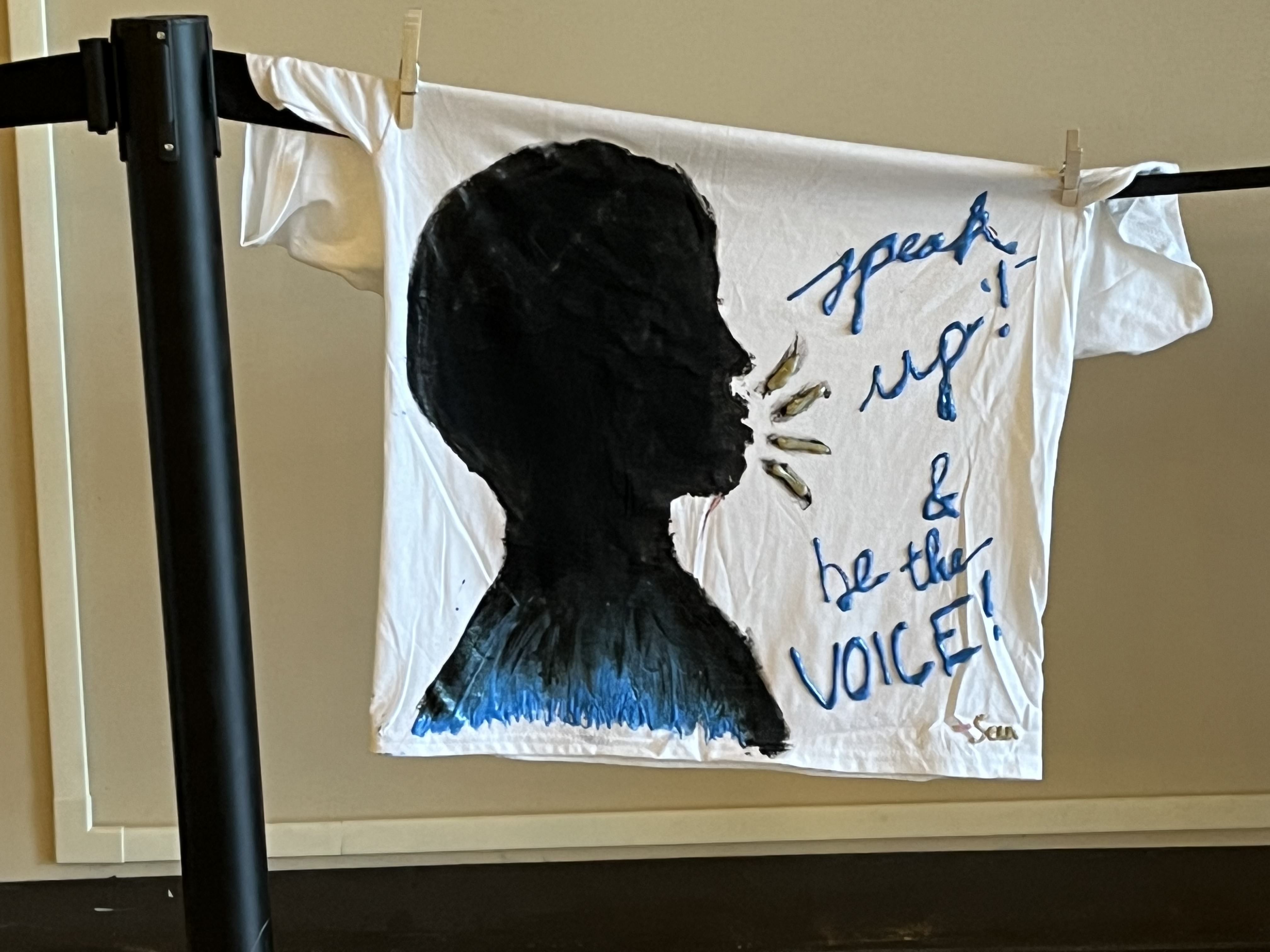
The group chose domestic violence and The Clothesline Project due to the statistical likelihood of college students experiencing intimate partner violence. “We did our project on domestic violence on college campuses because freshmen are more likely to experience intimate partner violence within the first four months of their first year,” Angus said. “Between move-in and the end of Thanksgiving break, they’re more likely to have experienced violence regardless if they’re a commuter or live on campus.”
The negative stigma surrounding the topic also played a role. “We wanted to talk about interpersonal violence because it’s something that happens every day and can happen to anyone,” Angus said. “It’s also important to note that talking about it breaks the discomfort surrounding it, as well as making it easier for victims and survivors to tell their stories when they are ready. Silence perpetuates violence.”
Awareness and prevention
Balogun said that the main goal of the event was to bring awareness to the topic. “Our goal is to start the conversation that needs to be started. I feel like it’s not talked about a lot. October is Domestic Violence Awareness Month, and I feel like there’s not a lot of events that have happened,” she said. “We had the Domestic Violence Symposium, but adding an additional [event] that caters toward the students in a less professional manner will engage the students and get them to ask the questions they’re afraid to ask.”
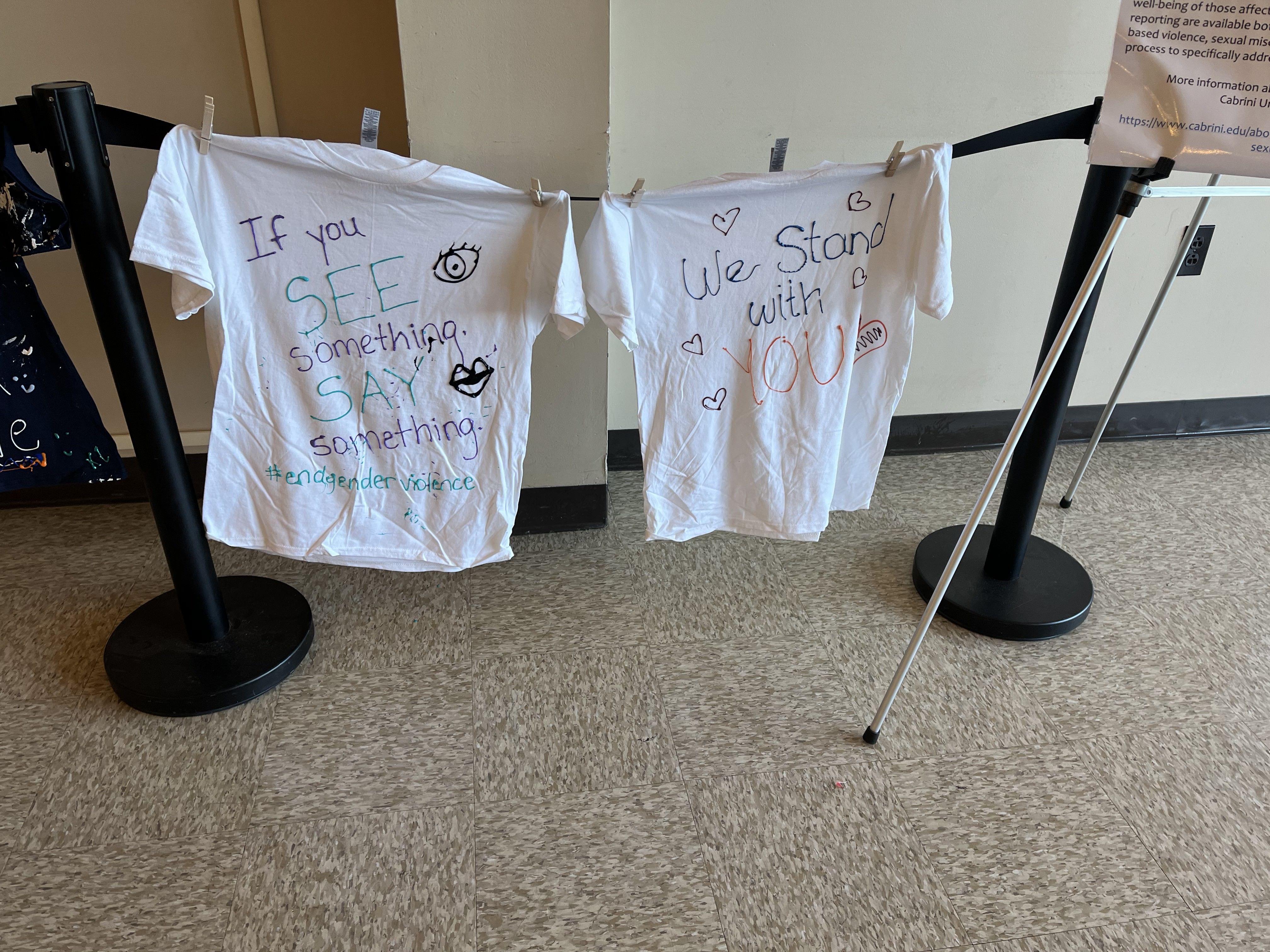
Prevention is another key piece of the event’s mission. “The importance of education on this topic is to prevent further violence against all individuals. That includes men, women, and non-binary or genderqueer individuals,” Angus said. “When talking about domestic violence, as a society, people tend to associate this topic with women. It’s a conversation that involves everyone, from children to older adults and elders, and people in the queer community. Domestic violence disproportionately affects marginalized groups, such as women, people in the queer community, and people of color.”
Dulce Vargas, a freshman and undecided major, shared the importance of awareness. “I think awareness for any type of abuse is really important and can’t be talked about enough. We also had an event at orientation where they talked about sexual assault in schools, and I think it’s good that Cabrini’s trying to bring attention to this topic,” she said. “I just hope that people are more open to having these types of conversations. It’s difficult for victims to talk about these things because there’s a stigma around it.”
Sam Sturkey, a junior psychology major, agreed. “Domestic violence doesn’t get enough light, so spreading awareness about it is what brought me here, because it’s so important,” she said.


